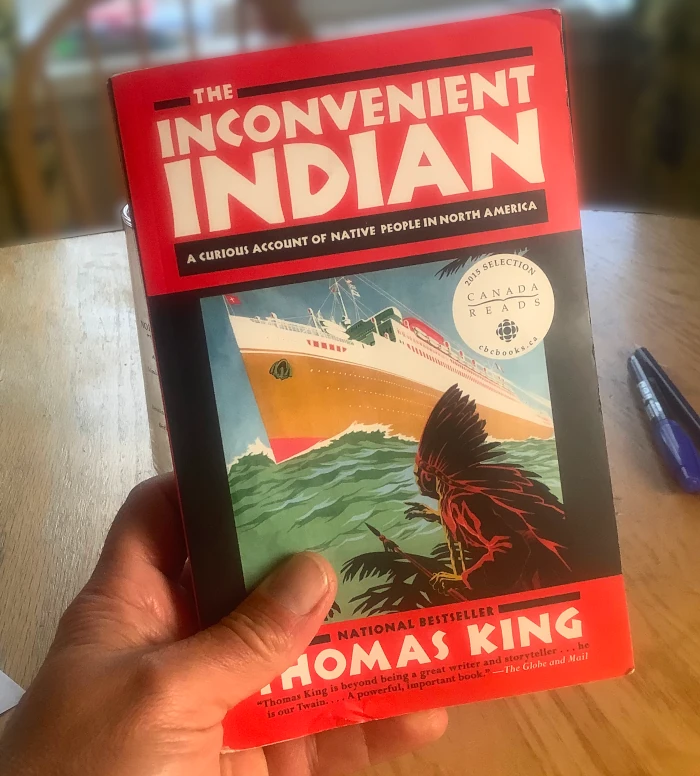The Inconvenient Indian by Thomas King is a revelatory work that reshapes the North American mind on their relationship with both the past and present native community.
He thoroughly covers the various Indian communities’ historical and modern plight. He does it with a sense of humor, common sense, details, and confidence.
Mr. King had to rewrite North American history through a different lens to properly tell his story. He succeeds in this challenging demand.
As a third-generation Canadian, this book was an eye-opener. King inadvertently opens a much bigger question, “why weren’t we taught these things in school while growing up?” There was scarcely a hint of the subjects and events the author surfaced during my education from the 1970s to 1980s.
This book should be read by all high school students, and a whole curriculum should be devoted to native Canadian history from a native perspective. Hopefully, this work begins an honest discussion within every vestibule of Canadian society.
…in the political world, apologies seem to have little to do with responsibility, and it appears one can say, “I’m sorry,” and “I’m not responsible,” in the same breath. I mention this because, despite the apology, North America’s paternalistic intervention in the lives of Native people continues unrepentant and unabated.
The European history behind his overall narrative interests this blog and its readers, so we will devote two paragraphs to this genre.
As most readers know who frequent this site, this blog is all about religion, philosophy, history, and language. So this book was read with the historical antecedents in mind. The Inconvenient Indian hardly ponders about the European mindset that sailed the earliest ships. King forced me to wonder how much the impact of the earliest immigrants, primarily the Baptists, Presbyterians, and others deeply invested in Calvinist ideology, have on Native American history. Calvinism is highly exclusivist and patronizing in its purest forms. Is the impact more significant than that of British colonialism?
The answer is unknown, and a quick online search fails to provide answers.
A second observation comes to mind while reading King’s narrative: the power of the human spirit. There are countless representations throughout history about institutional forces trying to force, repress, change, or mold humanity into a unified form with limited success. The Soviets attempted to wipe out religion, especially the Orthodox Church, the Germans with the Jews, the Western war on terror, and so on. Yet, humanity temporarily concedes but will not break. You cannot force another human being against their will. The outside will conform, but the inside is a very different nature. The native communities in North America, against all odds, have been under social forces for centuries and have bent but not broken.
The Inconvenient Indian is an excellent treatise and answers the major questions that generational Canadians have asked for over a hundred years.
